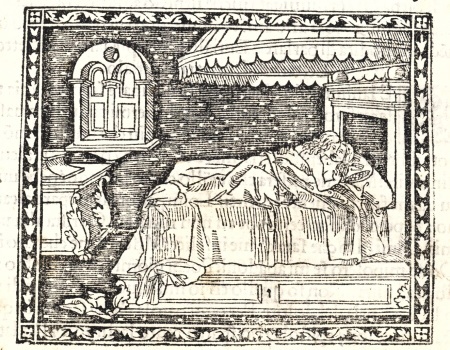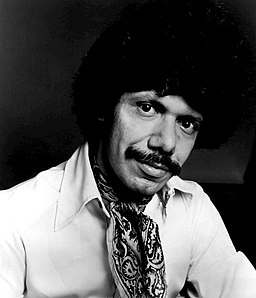|
|
Bulletin Board
- New to this installment is QAnon Droppings (i.e., “Q drops”=feces), items related to the dangerous, delusional cultists
Interesting Reading in the Interweb Tubez
- Rush Limbaugh Made America Worse (“[T]he qualities that these obituary writers know full well but have assiduously buffed into nothingness in their drafts: that Limbaugh’s politics were forged in a crucible of hatred and cruelty; that his racism and extraordinary misogyny are the only standout contributions he made to the world.”)
Blog Headline of the Week
Q Droppings
- Meet WAnon, because W is even farther to the right than Q on the keyboard
Nonbookish Linkage
- Hall of Fame hockey goaltender Ken Dryden looks at modern goalies and their impact on the game
Bookish Linkage
- There’s no excuse for a librarian to burn library books, even if you think they’re untruthful
Man is unhappy because he doesn’t know he’s happy.
Fyodor Dostoyevsky, The Possessed
Every high school and college student has heard of the Hundred Years’ War, even if very few of us recall the circumstances or combatants. Yet while long-lasting, it doesn’t compare to the length of other wars.
On the other extreme is the little-known Anglo-Zanzibar War of 1896. Essentially, it was a dispute over who got to determine who would lead the British protectorate East African island sultanate of Zanzibar. When the pro-British sultan died on August 25, 1896, his nephew, Prince Khalid bin Barghash, immediately declared himself sultan and moved into the palace. By the end of the day, he’d Khalid had secured the palace with almost 3,000 soldiers and supporters.
Great Britain was having none of this. It demanded Khalid surrender the throne to a cousin British diplomats intended to become sultan. The British already had two warships anchored in the harbor and another arrived that night. Two more warships arrived on August 26 and the British demanded Khalid leave the palace by 9 a.m. the following day.
 Sultan’s palace after the bombardment An hour before the deadline, Khalid refused. At precisely 9 a.m., the British warships opened fire. Within two minutes, the palace was on fire. The British ceased fire within 40 minutes, leaving 500 of Khalid’s fighters wounded or dead. Khalid supposed fled the palace as soon as the shooting started. The shortest war in history meant that Britain’s choice was the new sultan.
While that short war produced casualties, the longest recorded war was bloodless.
This war had its inception in the Second English Civil War. The war was fought between the Parliamentarians, led by Oliver Cromwell, and Royalist forces loyal to the Stuart monarchy. Cromwell’s victories and advances meant that by 1651, what remained of the Royalist Navy took safe harbor in the Isles of Scilly, an archipelago 25 miles off the southwestern tip of Cornwall, England. Given the success the Parliamentarians were having, the Dutch decided to ally with them. That led the Royalists to start raiding Dutch shipping lanes and Dutch merchant ships in the English Channel.
 New York Times, April 18, 1986 The Netherlands demanded reparations for the losses — by sending 12 warships to blockade the Isles. Admiral Maarten Tromp of the Dutch Navy landed to demand the reparations. The Royal Navy refused, so on March 30, 1651, he declared war on the Isles. Three months later, the Royalists on the Isles of Scilly surrendered to Cromwell. With the blockade unnecessary, the Dutch warships returned home.
One may question whether an admiral has the power to declare war. Likewise, can you truly call a conflict war if there’s no shooting, battles, or bloodshed? Many would say not. But not the Netherlands. On April 17, 1986, its Ambassador to England helicoptered to the Isles of Scilly and declared an end to the war — 335 years after it began.
We know more about war than we know about peace, more about killing than we know about living.
Gen. Omar Bradley, Armistice Day Address, November 10, 1948
Throughout its history, the papacy has had its fair share of reprobates. At least Pope Pius II dallied from the straight and narrow before he was ordained, let alone pope. As a literati of his time, he even wrote a bestselling erotic novel.
Enea Silvio Piccolomini (“Aeneas Silvius” in the Latin used by the educated) was born in the Tuscany region of Italy in 1405. By age 25 he made a career of working for Catholic bishops and cardinals. Those positions, though, didn’t quell his lustier side. As the Catholic Encyclopedia puts it, “That he freely indulged his passions is evidenced not only by the birth of two illegitimate children …, but by the frivolous manner in which he glories in his own disorders. The low moral standard of the epoch may partly explain, but cannot excuse his.” In fact, the encyclopedia notes, Aeneas avoided ordination until he was 41 “because of the obligation of [sexual] continence that it imposed.”
 Illustration from Tale of Two Lovers Aeneas’s intelligence and literary talents were such that Frederick III of Austria (1415–93) invited him to Vienna in 1442 as his private secretary and imperial poet laureate. He wrote some “mildly pornographic poetry” during that time, according to papal historian John Julius Norwich. Aeneas’s literary reputation led a fellow Tuscany native to ask him to write a story about two lovers. The result was 1444’s Tale of the Two Lovers, a suggestive tale about the secret love affair between Lucretia, a married woman of “barely twenty”, and Euryalus, a 32-year-old man in waiting for Frederick III.
Lucretia and Euryalus first see each other at a funeral in Siena, Italy. They were not introduced “but their eyes did everything.” It was love at first sight but both wondered if their love was unrequited. They end up exchanging a series of letters before and after consummating their love affair, leading some to suggest Tale of Two Lovers was the first epistolary novel or at least a significant step in its development.
Numerous manuscripts of the story circulated but it wasn’t published until after the pope died in 1464. That came between 1467 and 1470 at the hands of Cologne’s first printer, Ulrich Zell. The book became a bestseller. There were 67 printed editions by the end of the 15th century and about 40 more in the 16th century. Erotic images in some of the early editions may well have increased the book’s popularity.
In 1445, Aeneas left Vienna and he was ordained in March 1446. He was named a cardinal in December 1456 and installed as Pope Pius II on September 3, 1448. His literary activity continued while the pope and following his death the 13-volume Commentaries of Pius II was published, the only known autobiography of a pope. Recognizing his earlier conduct and literary efforts weren’t betting the Vicar of Christ, he distanced himself from Tale of Two Lovers as Pope Pius II. In an April 1463 papal bull some call the “Bull of Retraction,” the pope told the rector and students of the University of Cologne that he was ashamed, repented his early writings, and wished them to obscurity. “Follow what we now say: believe the old man rather than the youth,” he wrote, “reject Aeneas, accept Pius.”
The number and success of the printed editions of Tale of Two Lovers show his wish for obscurity wasn’t realized.
Gladly, Euryalus, would I yield to you, and, as you request, admit you to my love.
Enea Piccolomini, Tale of the Two Lovers
Bulletin Board
- My recent interest in history related posts leads to me contributing to History of Yesterday, likely beginning next week
Interesting Reading in the Interweb Tubez
- How Democrats Lost the Great Plains (“The story of Great Plains politics is about how a once independent region full of gracious people became so baptized into Republican orthodoxy that they’ve placed their hopes in fortunate sons and narcissistic TV stars.”)
Nonbookish Linkage
Bookish Linkage
One of the symptoms of approaching nervous breakdown is the belief that one’s work is terribly important[.]
Bertrand Russell, The Conquest of Happiness
I read late yesterday afternoon that Chick Corea died this week at age 79. I’m deeply saddened, almost to the point of tears.
Like perhaps many of my generation, I learned of Chick Corea when he played with jazz fusion powerhouse Return to Forever. I saw Return to Forever at Orchestra Hall in Minneapolis in 1975 or 1976. (It’s true that if you remember the 70s you didn’t live through them.) And although I can’t remember when I still rank it as one of the best concerts I’ve ever seen. It was stunning how much music and sound four musicians could produce. It was also the first time my friends and I were at a concert with an intermission. We’d arrived a bit late and our long hair and wore flannel shirts didn’t quite fit in with the suits and gowns wore by people drinking wine during the intermission.
 Chick Corea, 1976 It was only later when I was introduced to mainstream jazz that I learned the Chick was part of the groundbreaking fusion music of Miles Davis. In fact, In a Silent Way and A Tribute to Jack Johnson are among my favorite fusion records. Yet fusion was far from the be-all and end-all of Chick. Having played keyboards in a junior high garage band, it was easy for me to become a fan. While I have almost all the Return to Forever releases from the mid-70s, I have at least a score of other recordings in Chick’s catalog. Solo piano releases, solo albums, his work with Gary Burton, and more recent endeavors just scratch the surface. (I would be remiss if I didn’t mention that Sioux Falls native Mike Miller played guitar in the second incarnation of Chick’s Elektric Band and the album Elektric Band II: Paint the World.)
I was fortunate enough to see Chick and Origin in Sioux Falls in January 2000. I insisted my three daughters (then 8, 10, and 13) attend the concert, telling them I wouldn’t let them miss the opportunity to see one of the world’s best pianists. Granted, they didn’t enjoy the more standard acoustic jazz and may even resent their mandatory attendance to this day. I loved it, though. It was 180 degrees from what I saw some 25 years before. Regrettably, I didn’t follow through on plans to attend a performance in Omaha on Return to Forever’s reunion tour in the summer of 2008.
Since then, Chick released two albums over three years that are among my favorites of his work and verified his virtuosity in both fusion and straight jazz. In 2009, there was Five Peace Band Live, where he and John McLaughlin headed a great fusion quintet. January 2012 saw another live release, Further Explorations. This time, though, Chick joined with bassist Eddie Gomez and drummer Paul Motian, both former Bill Evans sidemen, for an exquisite trio performance using Evans as a template.
Despite his age, Corea released new or live material 13 times in the last decade. Moreover, as one writer noted a year ago, Corea “toured around the world on several completely different projects, and has commissions lined up that will consume every scrap of ‘downtime’ he might get in 2020.” I’m deeply grieving not having the chance to see him perform again and, even more so, losing the music that could have been.
It’s up to us as performers to be responsible for making sure there’s a good groove there. My rule number one of ethics as a performer is that you can never blame the audience for being a bad audience.
Chick Corea, JazzTimes, January 22, 2020
|
Disclaimer 
Additionally, some links on this blog go to Amazon.com. As an Amazon Associate I earn from qualifying purchases. There is no additional cost to you. Contact me You can e-mail me at prairieprogressive at gmaildotcom.
|











